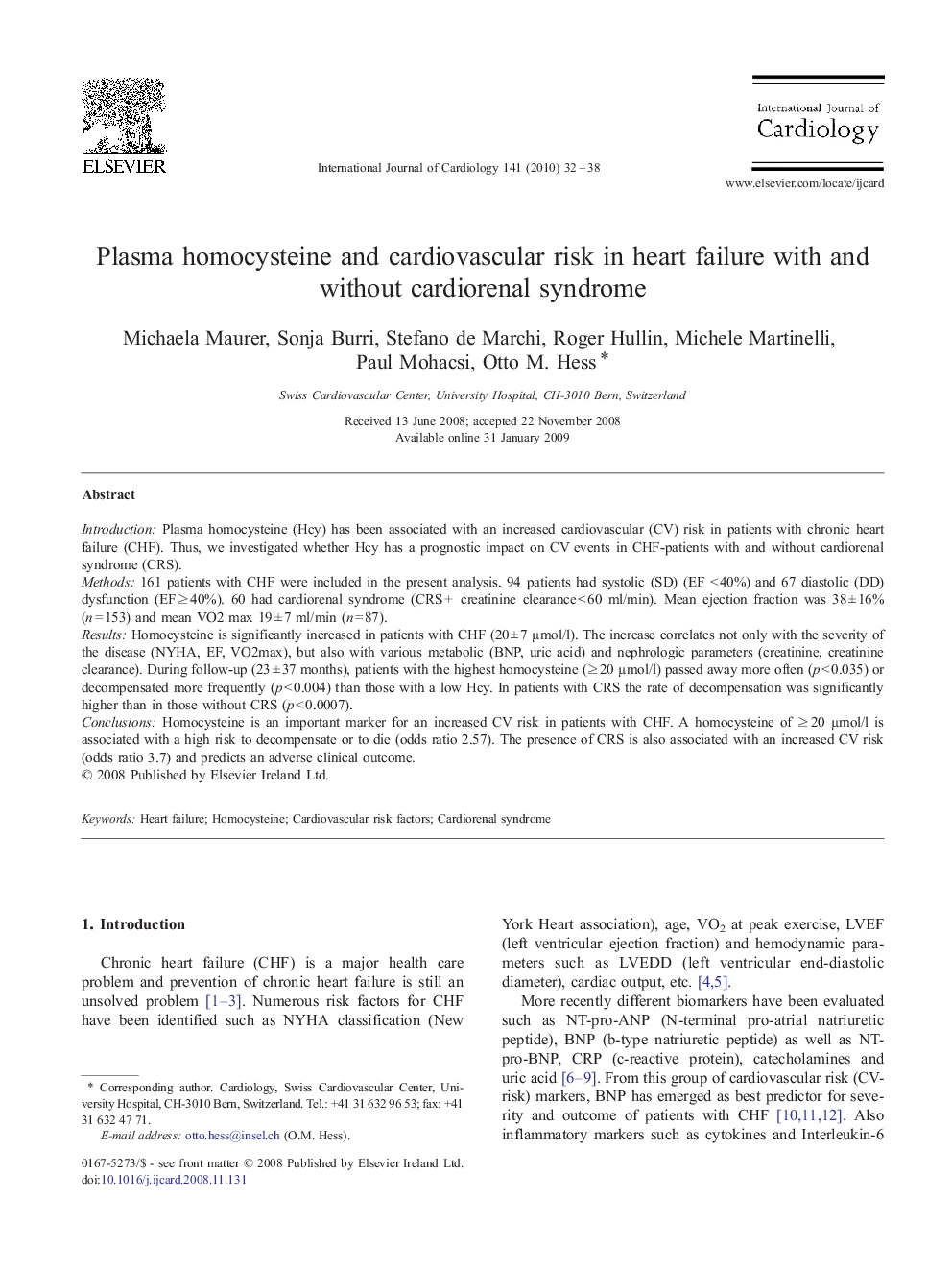| Article ID | Journal | Published Year | Pages | File Type |
|---|---|---|---|---|
| 2931991 | International Journal of Cardiology | 2010 | 7 Pages |
IntroductionPlasma homocysteine (Hcy) has been associated with an increased cardiovascular (CV) risk in patients with chronic heart failure (CHF). Thus, we investigated whether Hcy has a prognostic impact on CV events in CHF-patients with and without cardiorenal syndrome (CRS).Methods161 patients with CHF were included in the present analysis. 94 patients had systolic (SD) (EF < 40%) and 67 diastolic (DD) dysfunction (EF ≥ 40%). 60 had cardiorenal syndrome (CRS + creatinine clearance < 60 ml/min). Mean ejection fraction was 38 ± 16% (n = 153) and mean VO2 max 19 ± 7 ml/min (n = 87).ResultsHomocysteine is significantly increased in patients with CHF (20 ± 7 µmol/l). The increase correlates not only with the severity of the disease (NYHA, EF, VO2max), but also with various metabolic (BNP, uric acid) and nephrologic parameters (creatinine, creatinine clearance). During follow-up (23 ± 37 months), patients with the highest homocysteine (≥ 20 µmol/l) passed away more often (p < 0.035) or decompensated more frequently (p < 0.004) than those with a low Hcy. In patients with CRS the rate of decompensation was significantly higher than in those without CRS (p < 0.0007).ConclusionsHomocysteine is an important marker for an increased CV risk in patients with CHF. A homocysteine of ≥ 20 µmol/l is associated with a high risk to decompensate or to die (odds ratio 2.57). The presence of CRS is also associated with an increased CV risk (odds ratio 3.7) and predicts an adverse clinical outcome.
